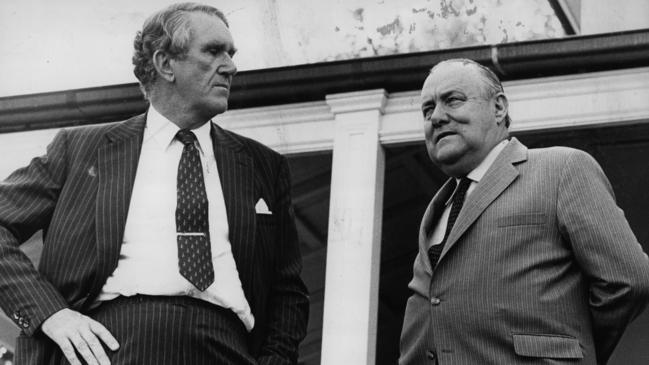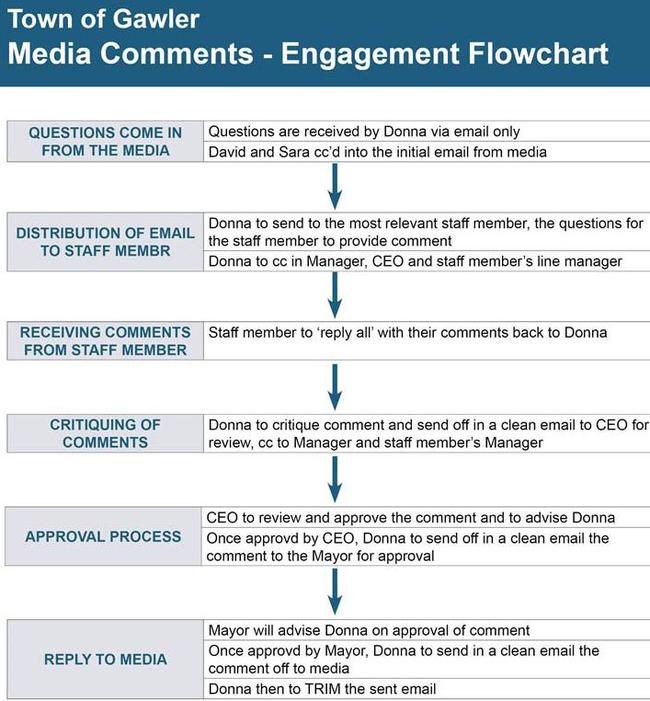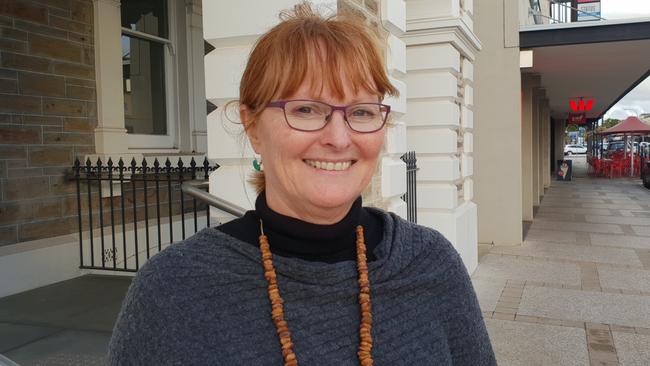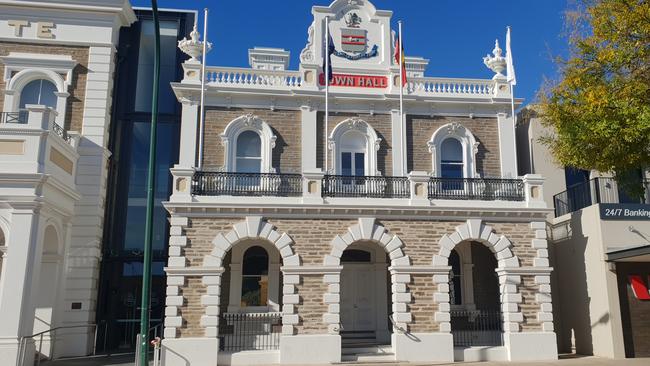Colin James: Ratepayers should be dismayed by how much the flow of information to the public has become controlled
Colin James used to directly phone the pugnacious New Zealand Prime Minister. Now he’s been told to use an email flowchart to get comment from Gawler Council. What happened?
Many years ago as a young newspaper reporter in New Zealand, I had a typewriter, telephone and small bound notebook listing various people alphabetically, aptly known within the trade as a “contact book”.
One of my tasks on a Sunday was to sometimes dial the number for a beach shack on a peninsula north of Auckland.
A middle-aged woman called Thea usually would answer and I would ask, with considerable trepidation, if I could speak to her husband. She would insist that he was too busy watching the All Blacks, cleaning fish or cheering on Richard Hadlee, but I would insist it was my editor’s instructions to call him on an issue of national importance.
And so I would find myself speaking to Sir Robert “Piggy” Muldoon, the pugnacious New Zealand Prime Minister and former corporal regarded by many Kiwis as a bully.

Three decades later, I was told this week by a council north of Adelaide that I couldn’t speak directly to its mayor, staff or elected members. In an email sent to various media outlets, Gawler Council’s media adviser, Donna Johnston, said she was the only point of contact for journalists.
She even made the unusual move of attaching a convoluted flowchart which showed the council’s internal processes for handling media inquiries before answers were signed off by Mayor Karen Redman, who had no idea the email had been sent until I contacted her for comment.

While our professional relationship is in its infancy, it has been productive. We talk about issues and she provides me with her views. Pretty simple, really.
To suddenly be told I could no longer approach her or councillors directly came not only as a surprise but concerned me. As it should anyone who believes in openness, transparency and accountability within our governments, whether they be federal, state or local. Councillors are elected by ratepayers to represent their communities. If they, or mayors, want to speak to journalists then that should be their right. Media advisers should be there to facilitate the flow of information, not to create obstacles or delays.

Now, there is nothing new in journalists being told they have to deal with media advisers – or, as they are known, “spin doctors”. It’s been progressively happening for years. Every Cabinet minister, government department, multinational corporation, church, non-government organisation, lobby group, union, university, police force and charity has them.
Neither is it unusual to have to put your questions in emails. It is now common practice to have to send off your query and wait while information is sought, checked, sanitised and returned. Getting filtered information is part of everyday life for journalists.
Long gone are the days when you could pick up the phone and ring a Prime Minister at his shack. But what is extraordinary is to be sent a flowchart detailing the exact process for handling your inquiries. Ms Johnston inadvertently opened a window on what happens behind the scenes when reporters ask questions – not for themselves but on behalf of the public, who they represent.
In my case, after a decade on newsroom desk duties, I have been back on the road for 12 months covering councils. When I seek information, it is not for my personal gratification, it is for ratepayers. They should be dismayed by how much the flow of information to the public has become controlled. My colleagues on Messenger Community Newsregularly encounter difficulties getting straight answers to straight questions. While some mayors, such as Ms Redman, are happy to deal directly with journalists, others insist on all queries going through their media advisers. One even refuses to provide her mobile number.
In this new age of digital technology – and online journalism – the need to obtain accurate information in a timely fashion has become paramount. While there obviously are internal processes which need to be followed, anything which delays the quick provision of that information creates problems. If the flowchart provided by Ms Johnston is indicative of how other organisations operate, then it is time for a serious review.

There are two working examples which could provide some answers. Campbelltown Council is the only metropolitan council without a media adviser. Its chief executive, Paul Di Iulio, handles all media inquiries, either by email or by phone. While most councils can take several days to provide answers to relatively basic questions, Mr Di Iulio usually responds the same day.
Another person who regularly phones reporters directly when they ask questions through his media adviser is Treasurer Rob Lucas. It is something Mr Lucas has been doing since he was the minister for education in the last Liberal state government in the 1990s. An affable and articulate individual, he has no hesitation picking up the phone and dialling a journalist to answer questions, provide background information and present the government’s position.
It is a very effective technique. Not only does Mr Lucas get his message across quickly and efficiently, reporters respect him for taking the time out of his busy schedule to speak to them. They also file their stories on time with the government’s views included, unlike many stories involving councils which are still progressing their way through flowcharts after deadlines have passed.
Contrary to public opinion, journalists do strive to produce objective and balanced reporting. To do this, they seek comment on contentious issues to present both sides of the story. Being able to pick up the phone and call key individuals such as mayors, council chief executives or councillors is critical to obtaining all the relevant information and facts.
Call me old-fashioned but it is what good journalism is all about – and what ratepayers deserve.
Colin James is chief reporter for Messenger Community News
